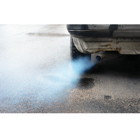Engineers play important role in providing clean air

Air quality, indoor and outdoor, has been rising up the agenda again. It was discussed at some length at October’s BESA National Conference, raised there by London deputy mayor for environment and sustainability Shirley Rodrigues as well as by technical experts.
Earlier this year, London already exceeded its annual air pollution target in only five days. And other parts of the UK are experiencing similar issues. The World Health Organisation has estimated that currently, air pollution costs the UK £62 billion pounds per year.
Speaking at BESA Conference, Peter Dyment of Camfil and David Frise, BESA’s head of sustainability, both highlighted the health impacts of poor air: “Poor air quality causes problems with lungs and eyes; it has been shown to affect cognitive function, including having a role in causing Alzheimer’s disease. Our air appears cleaner, but it’s not. Just because you can’t see the pollution doesn’t mean it’s not there,” explained David Frise.
Peter Dyment emphasised the importance of meeting the most appropriate Standards when selecting filters. He said: “We breathe 15kg of air each day, and we only eat 1kg of food and drink around 2kg of liquid. In a single breath we inhale 25 million particles, along with combustion gases. This shows just how important air is and how much of it goes into our bodies.”
He added that by offering sound advice to clients, engineers can help to ensure that the correct filters are selected and then also maintained – a vital step in keeping indoor air quality at good levels. “Engineers could be heroes if they can help to alleviate these health problems,” said Dyment.
Frise pointed out that BESA has developed a policy for providing buildings as ‘Safe Havens’ from poor external air quality, particularly in our city workplaces.







